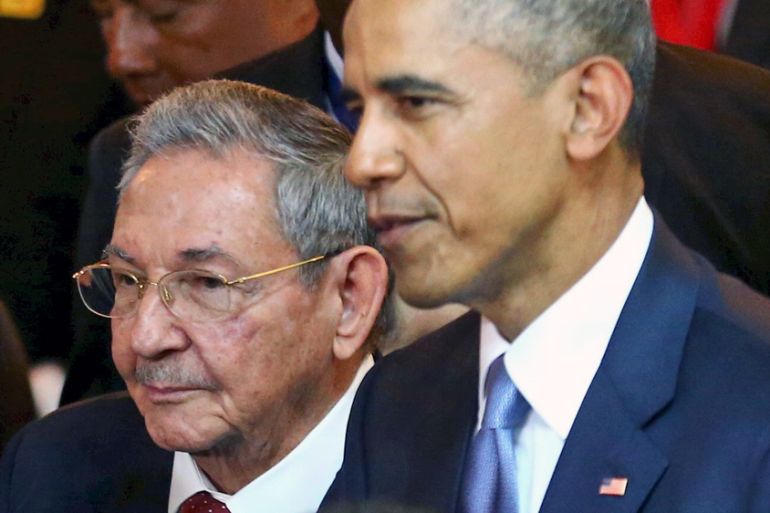Obama comes to Cuba
The 1962 missile crisis cemented the idea for Americans that Cuba was a staunch and dangerous enemy.

I’m sitting in a place I never in a million years thought I would be: Havana, Cuba. I’m an American in Cuba and I’m not breaking the law.
I’m sure of that because I flew in with the White House Press Corps for the historic visit by US President Barack Obama. There have been a couple of occasions over the past few days when that simple statement caused me to pause.
If you had told me nine years ago when I started working as a White House correspondent that one day I would be in Cuba to cover the American president’s visit, I would have said you were crazy. The thought never occurred to me. Cuba wasn’t on my radar. The logic was Cuba is an enemy, has been for half a century, and that isn’t going to change.
|
|
| Cuba eyes US market for expected medical tourism boom |
But suddenly it did change. Pope Francis sent two letters to the respective leaders and an opening was made. After long, arduous, and super-secret negotiations, the two countries normalised diplomatic relations and now the president and his family are coming to the island.
I haven’t been here long but so far it is breathtaking. There are people just hanging out of balconies and on the street. Music plays everywhere. Old Havana looks as if Europe has plopped itself on an island but it is definitely showing its age. It looks this way because for half a century the US has put an embargo on the island.
I love working for Al Jazeera because I’m exposed to so many different points of view and so many nationalities. I was speaking to our Latin American editor and she told me that for the people of the region, this is viewed as Cuba’s victory. They waited out the world’s superpower.
From an American perspective, for those without a personal connection to Cuba, it’s seen much more that Cuba was a hindrance to relations with the region, and it didn’t affect the US that much anyway. So why not try something new?
After doing my research I realise this is a complicated relationship. The US came in at the end of the Cubans’ war for independence from Spain, only to keep a military presence. The US left only after Cuba agreed that the US could intervene in its affairs at will. That meant the US backed at least two dictators, and then came Fidel Castro and his revolution.
The missile crisis cemented the idea for Americans that Cuba was a staunch and dangerous enemy. The Soviet Union placed missiles capable of launching nuclear missiles at the US and for 13 days the world waited for nuclear war.
I remember hearing people of my parents’ generation talking about the fear. They remember standing in line for confession at the Catholic church every day because they thought that night they would die in a blinding flash of light.
That is so far from my reality, I can’t fathom it. As the years have passed a new generation sees the relationship much differently. Polls show that most Americans think the US embargo of Cuba is dated and it should go.
The US Congress is unlikely to agree. Florida is a critical state for any election and powerful anti-Castro forces dominate its politics. That is why President Obama is coming here. He’s hoping that in the time he has left he can force enough progress that the relationship can’t be turned back. How does he do that?
READ MORE: Cuban combat rappers fight for the country’s youth
He needs to build a coalition that is just as if not more powerful than the anti-Castro lobby in Washington DC. If he can get American businesses to start putting money and people in here and they see a profit, they will fight to keep Cuba open.
The Cuban people seem to realise that it might work – or it might not. There is a wait-and-see attitude. I think there is, anyway. I can’t be sure because my producer just tried to interview a Cuban man only to have the police immediately show up and ask for his ID. They walked him away. He came back but, as you might guess, he no longer wanted to talk to us.
Consecutive US presidents have tried to topple the Castro government. They tried to assassinate Fidel several times, launched a botched invasion, and then tried to strangle the economy in hopes of spurring another revolution. This US president thinks the Cuban government will change if both countries’ people get to know each other. That will only work if the Cuban people are allowed to take part in the conversation.
|
|
| Cubans look forward to Obama visit |